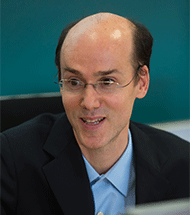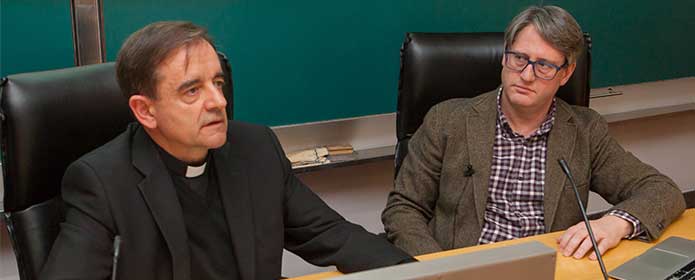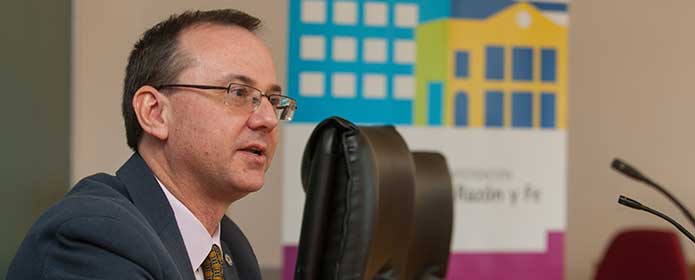"Monks, priests and nuns played a crucial role in the history of the world's scientific and technological development ".
Ignacio del Villar, Telecommunications Engineer, gave a lecture at seminar in February at group 'Science, Reason and Faith' at the University of Navarra.

"Monks, priests and nuns have played a crucial role in the history of the world's scientific and technological development ". This was one of the statements that Ignacio del Villar, PhD in Telecommunications Engineering and author of the book Sacerdotes y científicos: De Nicolás Copérnico a Georges Lemaître, made at the University of Navarra on the occasion of his participation in the February seminar of the group 'Ciencia, Razón y Fe', of the University of Navarra.
Focusing on the ability of the protagonists to bring together the various dimensions of knowledge, the session offered a broad look at the influence that Catholic priests, monks, nuns or intellectuals exerted for the scientific and technological development in both the average and Modern Ages.
In this sense, Professor Villar gave some examples, highlighting that in the average Age the monasteries were, in addition to centers of Christian spirituality, transforming agents in fields such as agriculture, livestock farming or beekeeping. He recalled that St. Hildegard introduced hops into beer brewing and that the monks of Grimbergen Abbey updated their recipe for brewing beer every ten years. He also mentioned Don Perignon, a Benedictine monk, as one of the most important people in the development of champagne.
instructions The professor of Electrical and Electronic Engineering at the Public University of Navarra cited some Catholic intellectuals such as Roger Bacon, St. Albert the Great and Nicolas Oresme, "who laid the groundwork for the future scientific revolution". He also praised the likes of Nicolaus Copernicus, Nicolaus Steno, Lazzaro Spallanzani, Gregor Mendel and Georges Lemaître, "to whom we owe heliocentrism, the birth of sciences such as geology, biomechanics and Genetics, the finding of artificial insemination and the Big Bang theory".
He also highlighted some of the research they carried out and for which they were not well known. Gregor Mendel, for example, was a great meteorologist and astronomer, and he anticipated that one day it would be possible to predict the weather and take advantage of it for crops.
"Today it is strange to meet a scientific priest."He also emphasized that all of them were trained in both science and literature and that they integrated the material and the spiritual in their lives knowledge . "Today it is rare to find a scientific priest. This figure was an element core topic when it came to interconnecting the various fields of knowledge. They were men very interested in everything, with an existential commitment and an interest in knowing reality beyond faith."
Professor Villar is the author of books such as Science and Catholic Faith: from Galileo to Lejeune, co-author of five books in the field of sensors and more than a hundred publications in international journals and conference proceedings. He is publisher associate of the Journal of Optics and Laser Technology since 2012 and of the journal Sensors since 2017. He is also a writer of works for knowledge dissemination and a catechist.



